Silabus S2 Mikrobiologi
- Last modified at 3 March 2021
STUDY PROGRAM OF MICROBIOLOGY (S2)
Syllabus
Microbial Metabolomics (MIK51A/2(2-0))
This course covers discussion of various type of physiological and metabolism events in microbes. Metabolome profile of microbes which comprises unique, important and economically valuable metabolites will also be discussed in concomitant to the engineering strategies which potentially be implemented in order to develop new phenotype relevant for the application in biotechnology, industries and environment. Modern metabolomics techniques based on big data and bioinformatics analysis will also be elaborated with practical guidance from the experts. Student are urged to actively involved during course discussion, either individually or in groups.
Coordinator: Dr. Rika Indri Astuti, M.Si
Molecular Biotechnology of Microbes (MIK51 /2(2-0))
This course discusses the properties of DNA, gene, organizational structure of the prokaryotic genome, genetics of plasmid, and gene transfer in prokaryotes in particular using bacteria as a model that includes conjugation, transformation and transduction. Besides that, it also discusses mobile genetic elements, gene expression and its regulation in prokaryotes, as well as recombinant DNA / gene cloning technology, and production of recombinant protein in prokaryotes and eukaryotes. Furthermore, microbial biotechnology and sustainability, ethics in biotechnology and patents are also discussed. Fungal genetics and biotechnology specifically related to gene cloning from fungi and its genetic engineering will also be discussed in this course.
Coordinator: Prof. Dr. Aris Tri Wahyudi, M.Si
Diversity and Systematics of Microbes (MIK52A/2(2-0))
This course discusses the diversity of microbial eukaryotes (fungi) and prokaryotes (bacteria) through various approaches in the principles of taxa reconstruction and arranging them in a hierarchical system that following the rules and recommendations of fungal and bacterial nomenclature.
Coordinator: Dr. Ir. Gayuh Rahayu
Mycotechnique (MIK52B / 1 (0-1)
The mycology technique course covers isolation methods from various environments and isolate characterizations based on morphology, ecology, physiology, genetics, and bioinformatics. Morphological techniques are conducted by microscopic based observation of fungal somatic and reproductive structures and identification keys. Fungal ecology studied by analyzing species diversity in the same habitat. Fungal physiology analyzed by observation of fungal substrate diversity in fields, identification based of culture characteristics grown on semi synthetic medium, and culture preservation techniques. Fungal genetics studied by characterization of culture derived from breeding between isolates, whereas bioinformatics techniques carried out by DNA sequence and protein analyses using taxon specific primers, and molecular systematics.
Coordinator: Dr Sri Listiyowati, M.Si
Microbiology for Sustainable Environment (BIO51C/2 (2-0)
The subject will cover knowledge and technology related to microbes and their environment, starting with an overview of the basic concept of life and microbial diversity in the environment. Followed by an active discussion on terrestrial and aquatic microbes, aeromicrobiology, microbes and extreme environment as well as techniques used to study microbes in their environment. Second part of the semester will discuss about biogeochemical cycles, microbial biotechnology and current development of microbes and their environment. Indepth discussion and presentation will be conducted under the perspective of microbes for sustainable environment
Coordinator: Dr. Ir. Yulin Lestari
Research Methodology (PPs 590 / 3 (3-0))
This course discusses the scientific approach in microbiology research covering research epistemology, research development, research type, and research methods in microbiology. This course also explains the structure and format of scientific writing that emphasize on proposal and research results writing and preparing a powerful presentation.
Coordinator: Dr. Ir. Gayuh Rahayu
Project in Mycology (MIK52C / 1 (0-1)
This course explores two substantial topics which are “Biology of Fungi” and “Important fungal-derived compounds”. The topic of Biology of fungi covers the exploration of fungi in traditional food; fungal food and medicine; mycorrhiza; lichen; weed, insect and nematode pathogens, and lignocellulolytic fungi. The mportant product from fungi including the decomposition products and its attributed metabolism processes comprises the primary and secondary metabolites which are applicable in the field of agriculture, environment and energy.
Coordinator: Prof. Dr Lisdar A Manaf
Prokaryote Project (MIK 51D/SKS 2 (0-2))
This course gives knowledge and skills to work with bacteria both in the fields of physiology and genetics. Isolation techniques and characterization of isolates which include staining, measuring enzyme activity, antimicrobial assays and its attributed resistance properties will be practiced. Isolation of genomic DNA, DNA amplification, bioinformatic analysis of DNA and protein sequences, and gene cloning in bacteria are themes in genetic aspects.
Coordinator: Prof. Dr. Anja Meryandini
Microbe-Host Interaction (BIO524/3 (2-1))
The course covers biology of microbe-host interaction in plant, animal and human which include mutualistic, neutral and antagonistic symbiosis. Aspect of biodiversity, ecology, physiology, interaction mechanisms and role of the microbe-host interaction in agriculture, health, and environment are also discussed. Student discussion in individual and group play significant role in this course.
Coordinator: Dr. Ir. Nampiah Sukarno,
Microbes and Their Potential Applications (BIO514 / 3 (2-1))
This course covers the characters and ability of microbes which support its remarkably potential application including the fermentation process, bioconversion, biotransformation, hydrolytic enzyme producers, antibiotics, single cell protein, biopolymer, organic acids, amino acids, nucleotides, plant growth hormones/promotors and vitamins.
Coordinator : Dr. Nisa Rachmania, M.Si
Biotechnology of Antimicrobial Compounds (MIK 62A/3 (2-1)
The course of Biotechnology of Antimicrobial Compounds presents antimicrobial compounds which include both antibiotic compounds of origin of organisms as well as semisynthetic antibiotic compounds and bacteriocin compounds, besides that it is explained about bacteriophage. Also explained organisms that produce these compounds and the selection and screening strategy to obtain these antimicrobial compounds supported by knowledge of production physiology, mechanism of action, biosynthesis, resistance, activity test methods, extraction and purification based on microbiological techniques (bioautography) and chemical techniques (chromatography) and physicochemistry to obtain pure antimicrobial compounds
Statistics Analysis (STK511/3(2-1))
Basic statistics (types of variables, presentation of data and summarization of data, random variable concepts, distribution of random variable opportunities, parameter estimation and hypothesis testing). Correlation and linear regression analysis (model formulation, estimation of model parameters, model testing, size of model goodness, model application). Some package analysis options are: (1) experimental design, (2) non-parametric analysis and categorical data analysis, (3) General (experimental design, categorical data analysis and multiple variable analysis), (4) open choice packages tailored to the needs of the study program.
Colloquium (BIO 601/1(0-1))
Colloquium is a scientific forum for students to present their research plans for thesis that have been consulted with the supervisor board. Colloquium is carried out in front of students, supervisors, and lecturers. The final result of the colloquium is set in research proposal form that is ready to be used as a reference in conducting thesis research.
Coordinator: Prof. Dr. dr. Sri Budiarti
Seminar (PPS690/1(0-1))
Seminar is a presentation of research results (thesis or atau dissertation) in a Postgraduate School’s scientific forum. This course is aimed to disseminate research results , both in writing and verbal, in order to absorb the input from forum. Those input are then used to in order to improve the quality of thesis, add scientific insideinsight, and toas well as to improve the student’s competencye of in scientific communication. Provides scientific a technique writing technique from various scientific works that covers writing project proposal and reports, including the way to deliver and present data, make slides and transparency, and use computer with Liquid Crystal Display (LCD) Viewers.
Coordinator : Post Graduate School
Research Proposal (BIO602/ (2(0-2))
Course of research proposal requires students to write their research plan. The proposed research included: literature studies, preparation of research methods and hypotheses designed. The research proposal was prepared with the approval of the supervisor.
Coordinator : Post Graduate School
Scientific Publication (BIO696/ (2(0-2))
This course requires student to construct scientific article based on the part of thesis research data and activities. The particular scientific article is published in a reputable national/international scientific journals.
Coordinator : Post Graduate School
Final Exam (BIO698/2(0-2))
Thesis exam or final exam for master program is the final evaluation after students of master program conduct research activities, thesis writing, and seminars. This thesis exam is intended to assess the ability of master program students to defense their results. The scope of the thesis exam includes the draft thesis and comprehensive knowledge of students relating to competence [science and methodology], thinking [analysis, synthesis], communication and solutions that are directly and indirectly related to the thesis. Masters program students who will take the final examination must meet the academic and administrative requirements, which set by IPB Postgraduate School.
Coordinator : Post Graduate School






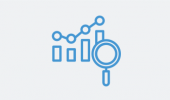
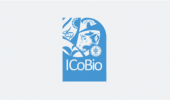
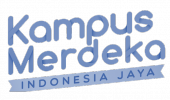






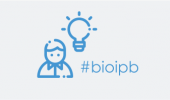


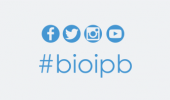




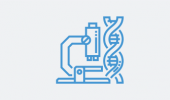







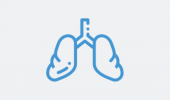










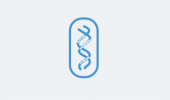


.png)
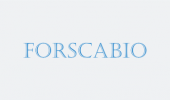







Login
LoginSitemap
map